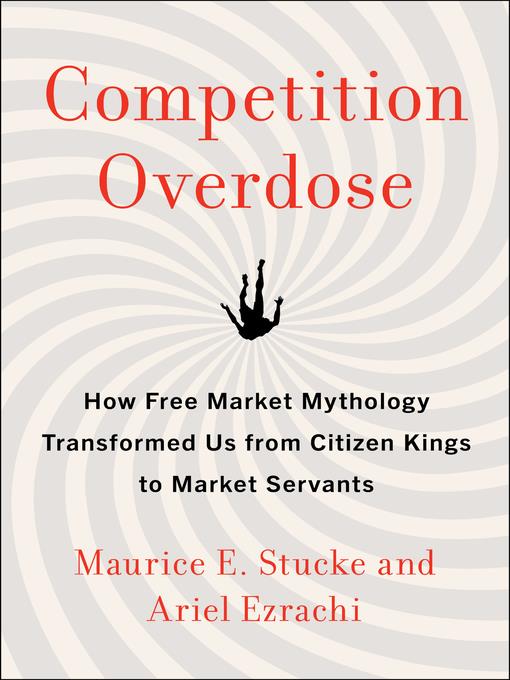
Competition Overdose
How Free Market Mythology Transformed Us from Citizen Kings to Market Servants
کتاب های مرتبط
- اطلاعات
- نقد و بررسی
- دیدگاه کاربران
نقد و بررسی

January 1, 2020
An exploration of how many of us feel "increasingly uneasy about the results of unbridled competition." In their latest collaboration, Stucke (Law/Univ. of Tennessee) and Ezrachi (Competition Law/Univ. of Oxford), who co-authored Virtual Competition: The Promise and Perils of the Algorithm-Driven Economy (2016, etc.), parse the theory of competition within a society, delineating how sometimes the positive aspects of competition--e.g., in choosing a college, on supermarket shelves, regarding hotel prices, etc.--can spiral downward, becoming a menace. Because competition has been sold for centuries as an unbridled positive, reading this book requires counterintuitive thinking and an open mind. Using a lucid, conversational style, the authors thoroughly explain each case study and anecdote. Does competition regularly result in a race to the bottom? Yes, the authors maintain, and they present ideas about how to achieve what they term "noble competition," in which sellers, buyers, and society at large all benefit. One homespun example of noble competition can be found at local farmers markets, where, for example, a few local growers of tomatoes offer quality produce grown organically at reasonable prices. Each grower wants to earn the most cash on a given Saturday, but there is nothing destructive about the friendly competition. On the other hand, in one of the book's most effective sections about negative competition, in which almost everybody loses, the authors examine big-time college football. Dollars that could have been allocated to improving academics on campus instead end up going toward exorbitant coaches' salaries and luxury boxes for wealthy alumni. Consequently, colleges engage in an arms race to see who can provide the most impressive facilities or pay their coach the most. The authors also offer persuasive studies about how too much competition can lead to consumer paralysis, and they clearly demonstrate how advocates of untrammeled competition successfully lobby against government regulation, thus causing harm to the general citizenry. Useful reading for business owners and attentive consumers.
COPYRIGHT(2020) Kirkus Reviews, ALL RIGHTS RESERVED.

February 15, 2020
Competition is the heart and soul of a capitalist economy, leading customers to select their optimal choice. But what if competition has evolved to damaging capabilities? Law professors Stucke and Ezrachi delve into this quandary with skill. The education system, for instance, has been corrupted by the lure of top rankings in periodicals, thus ignoring the harm being done to prospective students. The system ultimately leaves young students battered, while higher rejection rates enhance a school's prestige. The competition in the marketplace becomes destructive as grocery chains engage in price wars. Lower prices for customers lead to corners being cut, and to inferior products being marketed as top notch. The authors strike at the crux of quality being thrown aside for extra sales. The practice of drip pricing?dangling a low price while keeping ample fees hidden?is scrutinized and debated from both sides of the spectrum. The authors posit that competition, while beneficial, can become toxic to the consumer. This is a hard-hitting book that would be a valuable read for any and all consumers.(Reprinted with permission of Booklist, copyright 2020, American Library Association.)

























دیدگاه کاربران